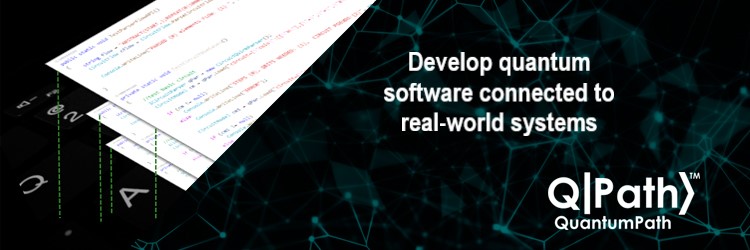Nowadays quantum technologies are beginning to emerge in the search for their practical applications and thereby have more relevance in the media as a solution to near-impossible-solve problems. Even in some types of quantum technologies and their applications, perhaps this timeframe could be shorter than we can assume right now.
Being aware that “classic” computing will coexist for a long time with quantum computing, and that the replacement of classical systems as we know them by quantum ones will be slow, we bet on a hybrid architecture.
The well-used hybrid architecture can today provide TOMORROW technology to multidisciplinary teams, which in this way will be able to evaluate, test and exploit quantum technology without having to wait for that moment for an unprecedented future over time, when “pure” quantum computing provides equivalent services. Of course, advancing the research and development of a classic hybrid/quantum computing architecture, like any major technological advancement, is not a simple thing, without major obstacles or high risks.
It is in this context that we design and develop QPath, an ecosystem of tools, services and processes –gathered on a platform – that offers a complete and complex hybrid information system that allowsand execute quantum processing units regardless of the environment in which they run, abstracting the classic application from the complexities that characterize them.
To fully comply with your accommodation, QPath is composed of two large functional units:
- CORE Modules, the core of the QuantumPath Patform, capable of managing solutions independent of quantum technology assisted by general purpose tools.
- The APPS Platform, which integrates with the CORE modules of the QPath system and makes it easier for development teams to manage the lifecycle of hybrid software projects.
The QPath CORE module is structured into 5 functional levels that -from a very general point of view- allow software engineers to have the necessary elements to make faster the adoption of quantum technologies in classic systems.
Quantum Path’s APPS on the other hand, will have the responsibility to increase the added value of the platform by providing an ecosystem of high-level applications that, designed to exploit core services, provide the team with the necessary tools to cover the largest number of contexts necessary to carry out a complete project.
Learn more about why QPath makes it easy to develop practical quantum software solutions on QuantumPath


Recent Comments